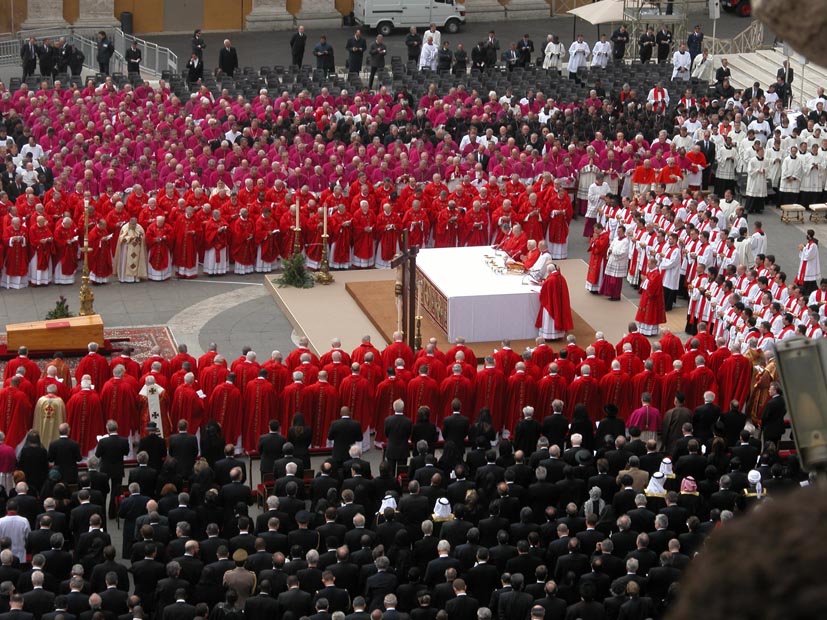 BBC News
BBC NewsBorrowing was £17.4bn last month, the second highest October figure since monthly records began in 1993.

Christopher Jackson
I sat down to watch this film, drawn in by the news of Francis’ death, and by the fact that Amazon Prime had yielded to the zeitgeist and made it free to view. The film contains some excellent acting but is marred by what seems to me a profound misunderstanding of the Catholic Church—and indeed religion in general.
But first, the plot. Based on Robert Harris’ novel, Conclave is set in the tense days following the death of a fictional pope. Cardinals from around the world gather in the Sistine Chapel to elect his successor. Much of the film unfolds within this cloistered setting, as the cardinals debate, vote, and, inevitably, betray. There are murmurings of secrets, hints of scandal, and a central mystery that pivots around Cardinal Lomeli (Ralph Fiennes, reliably excellent), who finds himself reluctantly thrust into the role of detective and moral conscience.
The drama is elegant and the cinematography rich with chiaroscuro moodiness—marble corridors, whispered Latin, incense curling into shadow. It certainly *looks* the part. But where the film falters is in its apparent assumption that religion is primarily a backdrop for political intrigue, rather than a lived, complex, and deeply spiritual system of belief.
The Church here is reduced to a kind of Vatican House of Cards—all cloak and dagger, with very little sense of why any of these men might have entered the priesthood in the first place. Faith is curiously absent. One comes away with the impression that none of the characters actually believes in God—or if they do, it’s irrelevant to their motivations. The stakes are never theological; they’re almost entirely Machiavellian.
More disappointing still is the film’s final turn. Without giving too much away, the eventual outcome of the conclave feels less like a profound moment of divine discernment and more like the climax of a TED Talk. The opportunity was there—indeed crying out—for a richer, more surprising vision: a choice that might illuminate what it means, in the deepest sense, to receive power not as a prize but as a calling. Instead, Conclave opts for a gesture toward contemporary correctness—a tidy, ideologically fashionable ending that drains the film of spiritual weight and leaves us with little more than a woke parable in cardinal’s robes.
This is not to say the Church should be immune from critique—it shouldn’t. But Conclave seems less interested in the Church as an institution grappling with modernity, scandal, and moral authority, and more in treating it as a setting for a vaguely Da Vinci Code-style whodunnit. That might make for a watchable thriller, but it misses something essential: the interior lives of believers.
Still, there are moments of real tension, and some of the supporting performances—Stanley Tucci as a wry American cardinal, for instance—bring nuance and humanity. It’s a film that wants to say something about power, secrecy, and legacy. It just doesn’t seem entirely sure whether it respects the Church or merely wants to use it.
In the end, Conclave is a film caught between reverence and cynicism. It offers style, intrigue, and some fine performances—but it lacks the soul of the institution it seeks to portray. For those with any real knowledge or affection for Catholicism, it may feel like a missed opportunity. For everyone else, it’s an entertaining, if oddly bloodless, ride through one of the most mysterious rituals left in Western public life.